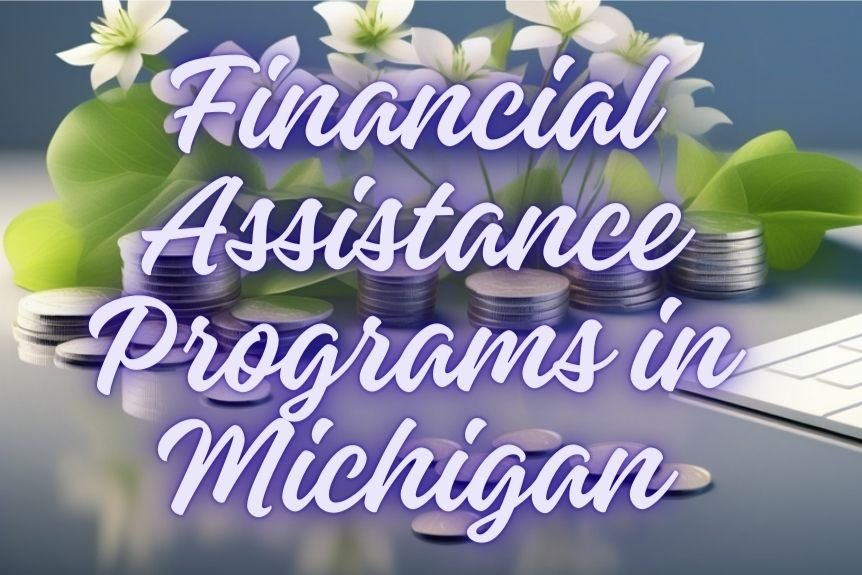Navigating financial crises can be overwhelming, but knowing where to turn for immediate assistance can make a significant difference.
These 7 Immediate Financial Assistance Programs offer a lifeline to those in need of swift support during challenging times. Whether it’s emergency cash, help with utility bills, or access to medical expense relief, these programs can provide crucial relief when it matters most.
Understanding these avenues could be the key to weathering financial storms and regaining stability.
Emergency Cash Assistance Programs

Emergency cash assistance programs play a crucial role in providing immediate financial relief to individuals facing urgent crisis situations. These programs offer essential emergency financial assistance to those in need, helping cover expenses such as food, housing, and medical bills during times of crisis. Designed to address emergency financial needs swiftly, eligibility criteria for these programs may vary but typically target individuals experiencing unforeseen circumstances or financial hardship. By providing quick access to emergency cash, these assistance programs aim to bridge financial gaps and alleviate the stress of unexpected expenses.
Individuals can utilize funds from emergency cash assistance programs to address emergency expenses that arise unexpectedly, ensuring they have the necessary resources to navigate challenging situations. Whether facing sudden medical bills, housing instability, or other urgent financial needs, these programs offer timely help to support individuals during times of crisis. Overall, emergency cash assistance programs serve as a lifeline for those experiencing financial distress, offering a vital source of emergency financial help when it is needed most.
Utility Bill Support Programs
During times of financial hardship, individuals may seek assistance through utility bill support programs to alleviate the burden of essential service costs such as electricity, water, and gas bills. These programs offer immediate financial support to struggling households, particularly low-income families, who are finding it challenging to cover their utility expenses.
Here are some key points to consider regarding utility bill assistance programs:
- Financial support is provided to help with bill payment extensions and prevent service disconnection.
- Low-income families and individuals facing difficulties in paying utility bills on time may qualify for discounted rates or grants.
- Some programs offer energy-saving tips and resources to help participants reduce overall energy costs.
- Eligibility criteria vary based on income levels, family size, and specific guidelines of the utility assistance program.
- Immediate assistance is available through these programs to offer relief to those experiencing financial strain due to high utility bills.
Rent and Housing Assistance Services

Rent and housing assistance services are crucial for individuals and families facing immediate housing crises. Emergency housing choice voucher programs and financial aid for security deposits offer tangible support for those in need of shelter.
Government programs can provide affordable housing options and emergency lodging to ensure housing stability during challenging times.
Emergency Rent Aid
Financial relief programs targeting housing and rental assistance services aim to provide immediate aid to individuals and families at risk of eviction or homelessness due to financial hardship. Emergency rent aid programs offer temporary relief by covering a portion or all of the rent owed to prevent displacement. Eligibility criteria for these programs typically focus on low-income households facing a crisis. Accessible through local government agencies, non-profit organizations, and community resources, emergency rent aid programs strive to stabilize housing situations and prevent homelessness. By providing crucial financial assistance, these programs play a vital role in supporting individuals and families during times of acute housing instability.
Emergency rent aid programs provide financial assistance to individuals and families facing eviction or homelessness due to inability to pay rent.
These programs offer temporary relief by covering a portion or all of the rent owed to prevent displacement.
Eligibility criteria for emergency rent aid programs may vary, but they generally target low-income households experiencing a crisis.
Emergency rent aid can be accessed through local government agencies, non-profit organizations, and community resources.
The goal of emergency rent aid programs is to stabilize housing situations and prevent individuals and families from entering or experiencing homelessness.
Housing Voucher Programs
Housing voucher programs offer crucial financial assistance to low-income individuals and families, aiming to alleviate housing costs and prevent homelessness. The Housing Choice Voucher Program, funded by the Department of Housing and Urban Development (HUD), helps eligible participants by subsidizing rent payments. These government assistance programs are designed to ensure that low-income households have access to affordable housing.
Eligibility is determined based on income levels and household size, with beneficiaries typically required to contribute a portion of their rent while the voucher covers the remainder. Local public housing agencies administer the housing voucher programs, working to support individuals and families in securing suitable living arrangements and avoiding housing instability.
Food Assistance Programs

Amidst the growing issue of food insecurity, various food assistance programs play a crucial role in providing immediate relief to individuals and families in need. These programs offer essential support to combat hunger and ensure access to nutritious food.
Some key components of food assistance programs include:
- Food Banks: Distribute free or low-cost groceries to those in need.
- SNAP (Supplemental Nutrition Assistance Program): Provides nutritional support through electronic benefits for purchasing food.
- Nutrition Education: Offers resources to promote healthy eating habits and better food choices.
- Meal Delivery Services: Deliver prepared meals to individuals who are unable to access food on their own.
- Community Meals: Provide communal dining experiences for those facing food insecurity to access hot meals in a social setting.
These programs operate based on income and household size criteria to reach those most in need efficiently. Especially during the COVID-19 pandemic, food assistance programs have adapted to meet increased demand while ensuring safe distribution practices for recipients.
Medical Expense Relief Programs
Various forms of medical expense relief programs are available to assist individuals in managing the high costs associated with healthcare.
From charity medical funds to hospital bill assistance programs, these initiatives aim to alleviate the financial burden of medical treatments.
Understanding the options for medical expense relief can help individuals access the support they need to prioritize their health and well-being.
Charity Medical Funds
Charity medical funds play a crucial role in providing financial assistance to individuals experiencing financial hardship by covering essential medical expenses. These programs help individuals cope with medical expenses, including hospital bills, surgeries, medications, and treatments, ensuring access to necessary healthcare services. Eligibility criteria for these funds may vary, but they generally aim to support individuals without adequate insurance coverage or financial resources. Charity medical funds rely on donations and fundraising efforts to provide immediate medical expense relief to those in need.
- Charity medical funds provide financial assistance for medical expenses.
- Programs cover costs like hospital bills, surgeries, and medications.
- Funding alleviates the burden of high medical bills.
- Eligibility criteria vary to support those without adequate insurance.
- Funds rely on donations and fundraising efforts to assist individuals.
Hospital Bill Assistance
In the realm of healthcare financial assistance, Hospital Bill Assistance programs serve as critical resources for individuals facing challenges in covering their medical expenses. These programs offer various forms of financial relief such as grants, subsidies, or payment plans to help individuals manage the burden of significant medical expenses. Eligibility criteria for hospital bill assistance programs vary but generally aim to support those in genuine need. Whether funded by government agencies, non-profit organizations, or healthcare providers, these programs play a crucial role in alleviating the financial strain caused by unexpected medical emergencies. Below is a table summarizing key aspects of hospital bill assistance programs:
| Eligibility Criteria | Types of Assistance Available | Funding Sources |
|---|---|---|
| Varies based on need | Grants, subsidies, payment plans | Government agencies, non-profit organizations, healthcare providers |
Job Training and Childcare Assistance

To address the challenges faced by individuals juggling work responsibilities with childcare needs, job training programs and childcare assistance services play a crucial role in providing essential support. Job training programs offer skills development in high-demand industries, improving employment opportunities for participants. These initiatives aim to break down barriers faced by individuals balancing work responsibilities with childcare needs, enabling them to pursue skill development and secure stable, well-paying jobs.
On the other hand, childcare assistance programs provide financial support for working parents, helping them afford quality care for their children. Job training programs assist individuals in gaining new skills and qualifications, enhancing their employability. Simultaneously, childcare assistance services alleviate the financial burden of childcare expenses, allowing parents to remain in the workforce and advance their careers.
Through these programs, working parents can access the necessary support to enhance their skills, secure employment, and ensure quality care for their children.
Nonprofit Financial Support Services
Amidst the support provided by job training and childcare assistance programs for individuals balancing work and childcare responsibilities, nonprofit organizations offer crucial financial support services to address immediate crisis situations. Nonprofit financial assistance programs aim to provide emergency funds for urgent needs like rent, utilities, medical bills, and food. These organizations collaborate closely with community partners to ensure a swift response to financial emergencies, offering various forms of aid such as direct cash assistance, gift cards, vouchers, or referrals to other support services. The primary goal of nonprofit financial support services is to alleviate immediate financial burdens and prevent further hardships for individuals and families facing crisis situations. Below is a table highlighting key aspects of nonprofit financial assistance programs:
| Features | Description |
|---|---|
| Immediate Assistance | Offers quick financial aid for urgent needs |
| Collaboration | Works with community partners for effective support |
| Varied Support Forms | Provides cash aid, gift cards, vouchers, etc. |
| Preventive Approach | Aims to stop financial crises from escalating |
| Targeted Assistance | Focuses on addressing specific urgent needs |






